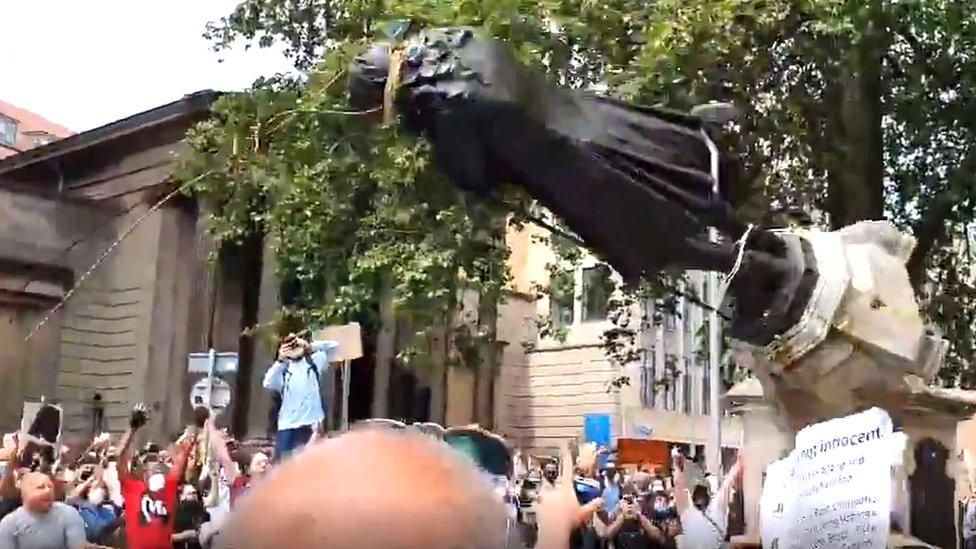Slave trader memorial in Cornwall church 'clashes with Christianity'
- Published
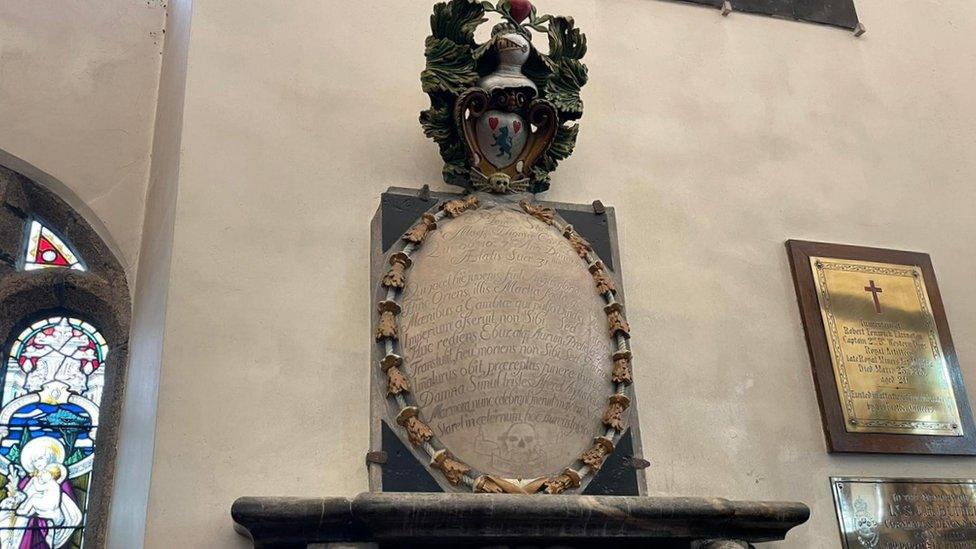
Falmouth-born Thomas Corker worked for the Royal Africa Company in Sierra Leone before returning to his hometown
A memorial to a 17th Century slave trader in a church in Cornwall "clashes starkly" with the message of the Christian Gospel, church leaders say.
The marble plaque and eulogy to Thomas Corker are in a prominent position in King Charles Church, Falmouth.
The Diocese of Truro said it glorified the "despicable" slave-trade.
It said a consultation under way about the memorial's future had seen slow progress, but there was "now a renewed energy to resolve the issue".
Falmouth-born Corker died in the town September 1700, aged 31.
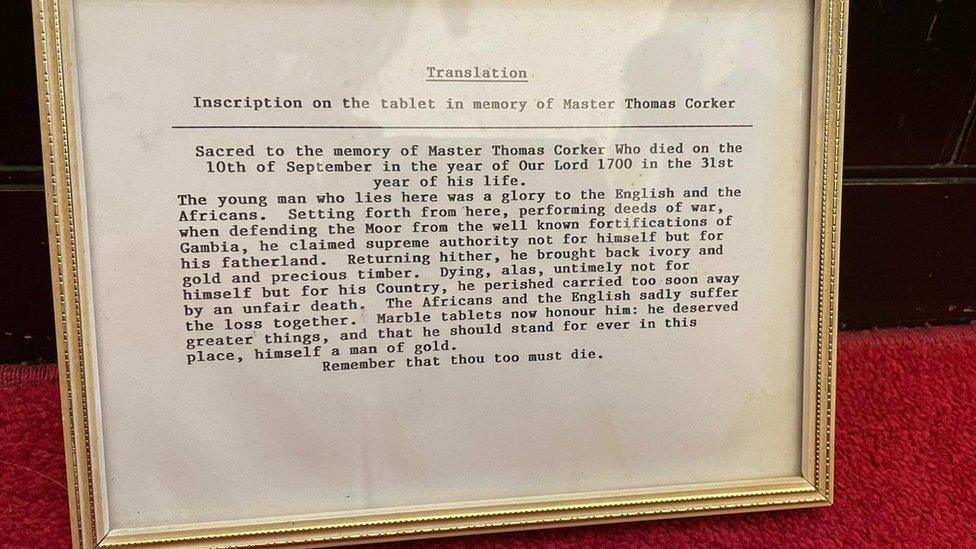
A translation of the Latin inscription can be seen in the church
Amateur historian Kate Thomas said Corker worked for the Royal Africa Company in Sierra Leone, marrying into a local royal family, before coming back to Falmouth after being sacked, bringing slaves back with him.
She said she was among campaigners to have it removed, but added it should not be hidden because "history shouldn't be lost and children should know Falmouth's real history".
The diocese said the memorial about the "despicable transatlantic slave-trade clashes starkly and profoundly with the message of the Christian Gospel".
It said it had "heard the heartfelt sentiments of the black community" and others, including a direct descendant of Corker.
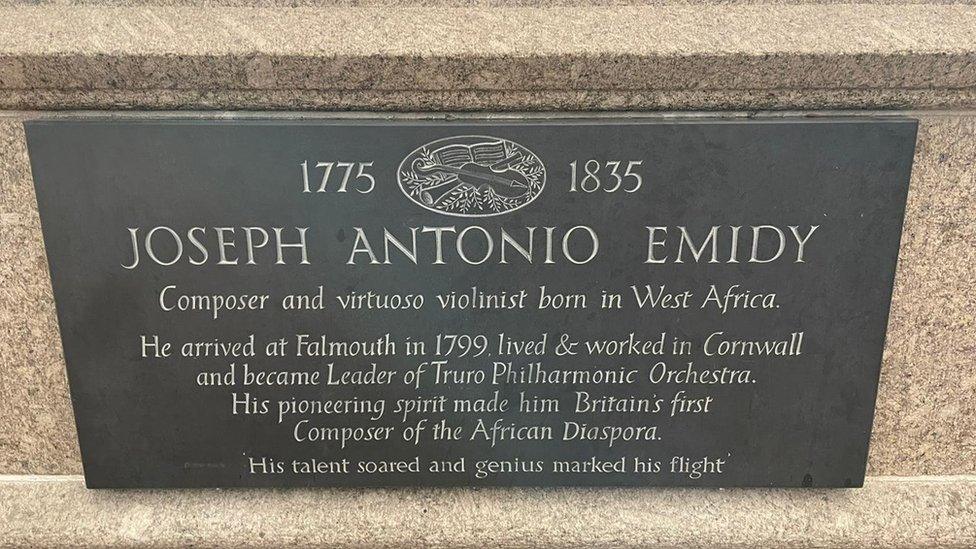
The Diocese of Truro said the Coker memorial could be contrasted with that of Joseph Emidy to educate people
A temporary notice had been placed beside the memorial, written in Latin, about its "contested heritage", it added.
The church said it was looking, as part of the consultation started last year, if it should remain "to be used educationally", particularly in contrast with a nearby memorial to Joseph Emidy, a black musician and freed slave who had strong associations with Falmouth, and had a "hugely contrasting" story.
Reverend Canon Bill Stuart-White, vicar at King Charles, said he had "every sympathy with those who would like to see it gone, [but] I personally don't agree that's the best way forward.
He said: "We would welcome further discussions on how best to do it, because, if we are to use it educationally, then we need all voices to be involved."

Follow BBC News South West on Twitter, external, Facebook, external and Instagram, external. Send your story ideas to spotlight@bbc.co.uk, external.
- Published19 October 2022
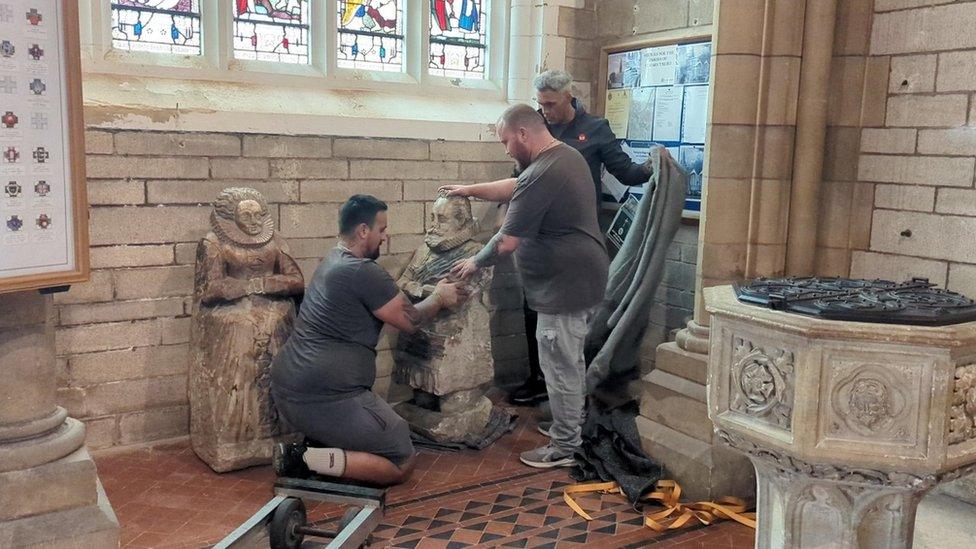
- Published17 October 2022
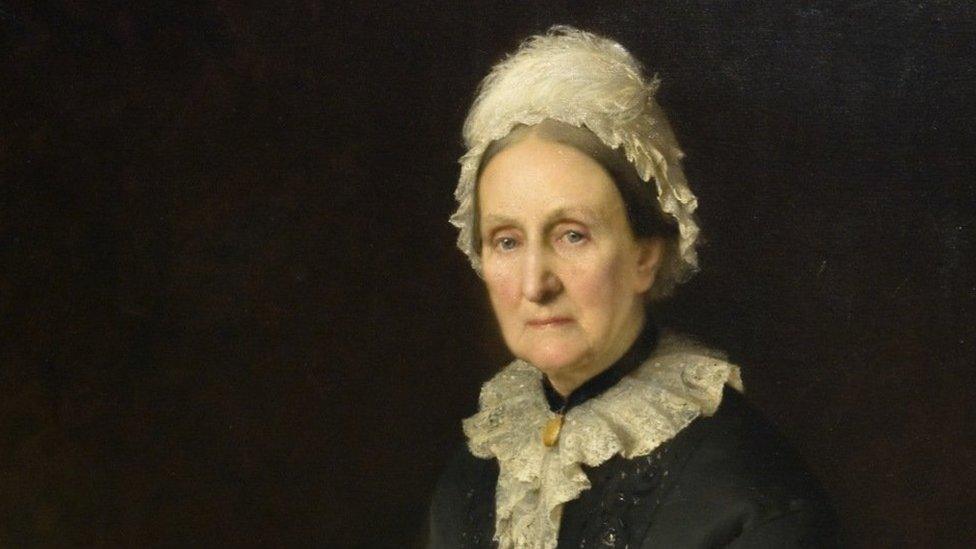
- Published23 September 2022
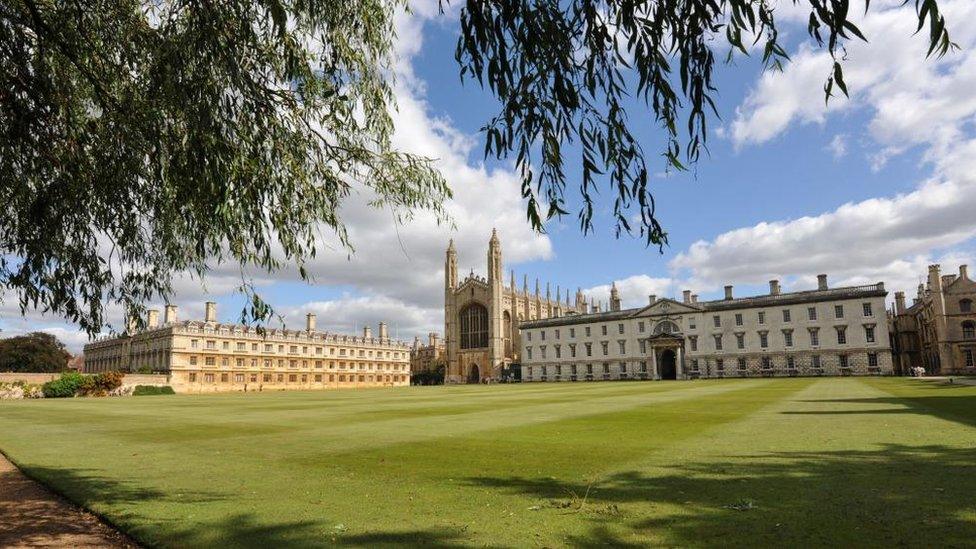
- Published12 September 2022

- Published1 September 2022
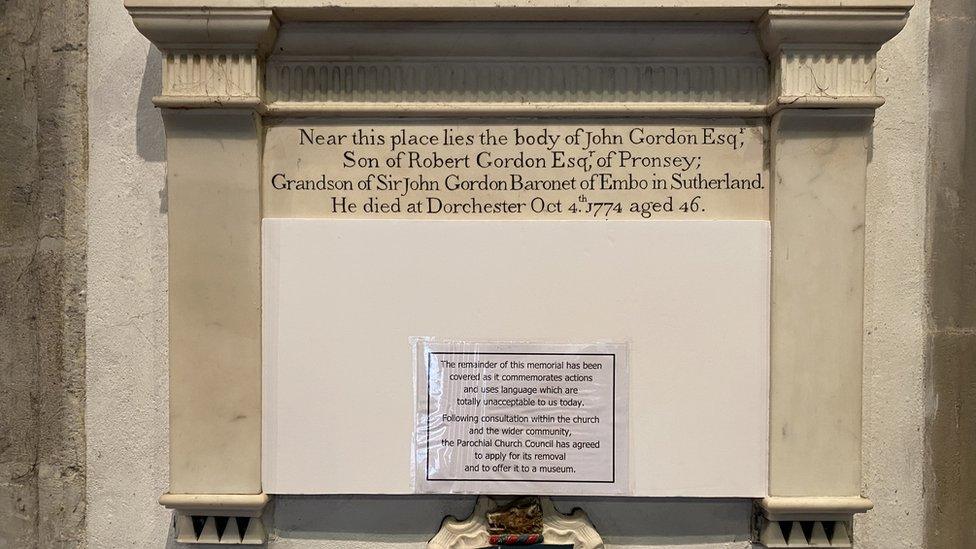
- Published8 June 2020
